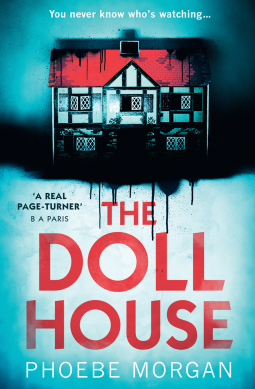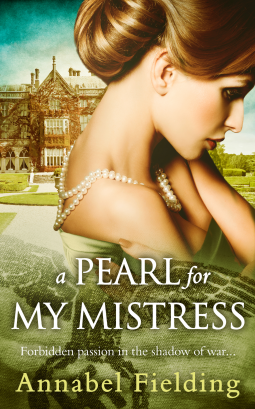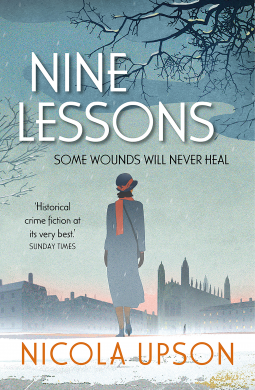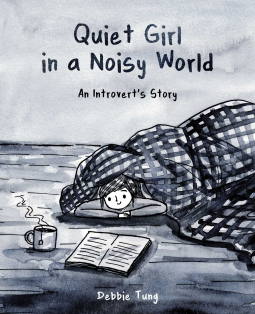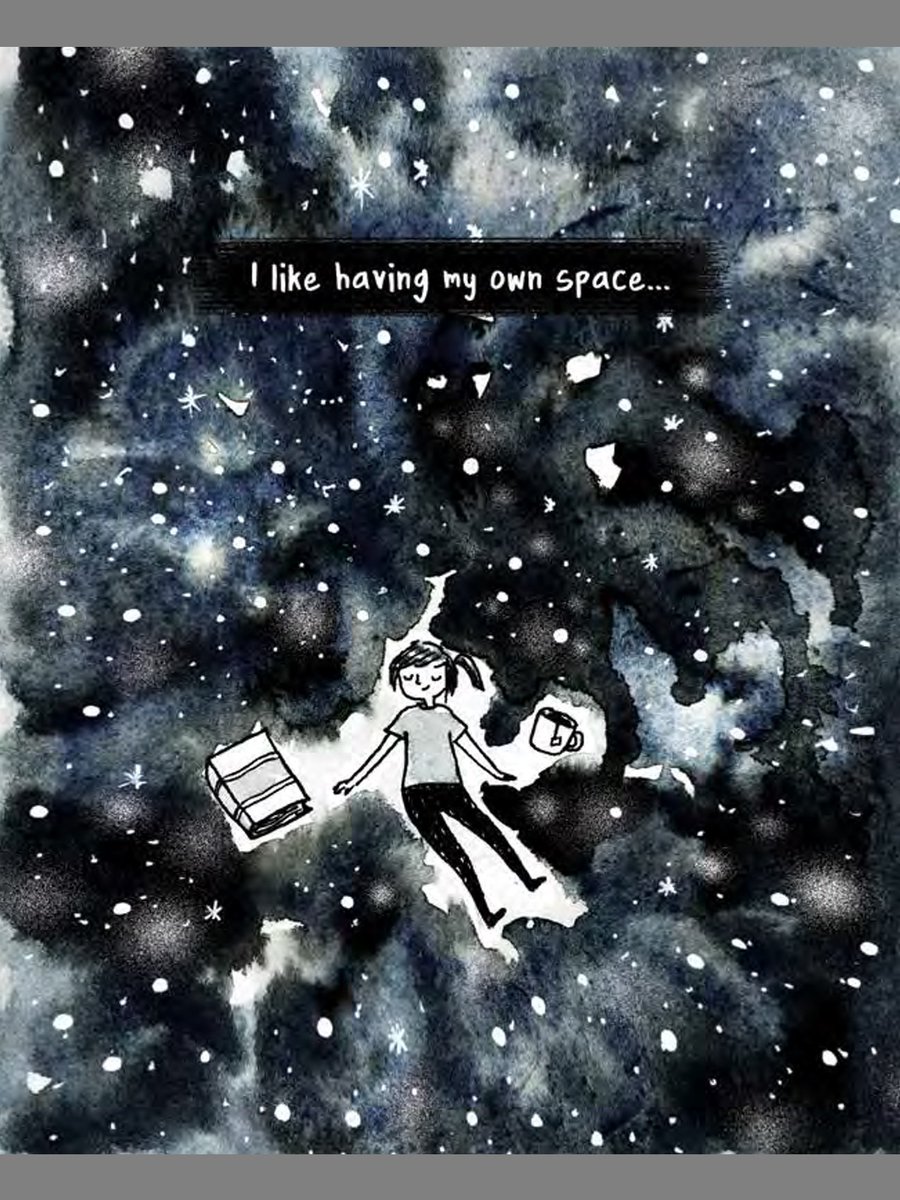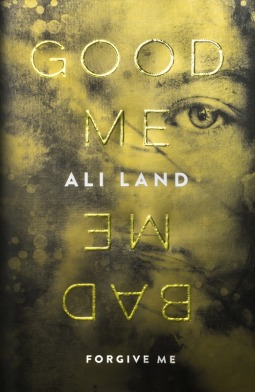Sisters Corinne and Ashley enjoyed an idyllic childhood, symbolised by the dolls' house lovingly built for them by their father - a beautifully furnished, perfect replica of their family home. In the present day Corinne, now an adult, is under a lot of stress - she's still grieving the recent loss of her beloved father, eminent architect Richard Hawes, and she and partner Dominic are struggling to conceive, undergoing gruelling fertility treatment. Things get worse, though, when Corinne begins finding fragments from her childhood dolls' house - a little door, a piece of fabric - in inexplicable places. It seems like someone is taunting her, but who and why? And what is her mother not telling her? Meanwhile, elder sister Ashley's life is also taking a strange turn. Husband James is never there (he's always at work - or is he?). Her daughter and son are acting out of character, and something isn't right with baby Holly either. There's clearly an unseen hand at play, but who does it belong to? In true psychological thriller tradition, there are various candidates both likely and unlikely. Interspersed with Corinne and Ashley's stories are flashbacks from the point of view of an unnamed child narrator with an apparent connection to their family, albeit very much on the outside.... Although I'd heard good things about this book, I was slightly sceptical, as the cover looked a bit sensationalist. And let's face it, not everything that calls itself "A gripping psychological thriller with a killer twist!" (i.e. just about everything nowadays) really is. However, I was pleasantly surprised as The Doll House is genuinely well written, well plotted, tense and unpredictable. Phoebe Morgan does a great job of building a sense of menace and foreboding, culminating in scenes of almost unbearable tension. It's an impressive debut, and I look forward to reading more from Phoebe Morgan.
Thursday 28 September 2017
The Doll House by Phoebe Morgan: Review
Tuesday 26 September 2017
The Other Woman by Laura Wilson: Review
Sophie Hamilton and her husband Leo have a fairly marvellous life - house in the country, flat in town for City worker Leo, fancy cars, a yacht (!), three lovely-ish kids, Labrador (of course), "kitchen sups" with friends. (Once I started seeing Sophie as Samantha Cameron, I couldn't quite shake it. I think it was the kitchen sups.)
Every Christmas Sophie sends one of those round-robin letters to all her friends and acquaintances, notifying them about all her family's marvellous achievements over the past year. It's a bit of a shock when someone starts returning these to sender, scrawled over first with "Smug Bitch", then with allegations that Leo is having an affair and about to leave her. Sophie's pretty sure she isn't smug (though actually, she is) but she's not so sure about the affair, and when she thinks she's found concrete evidence, something happens which causes her life to quickly and dramatically unravel... The tone of this felt different to me from Laura Wilson's other books. There's not a great deal of mystery here as the plot mainly concerns Sophie's attempts to cover up what has happened - which rapidly becomes a black comedy of errors as she makes a series of fairly terrible decisions and misjudgements and pretty much everything that can go wrong, does. She remarks herself at one point that things are becoming farcical, and they are. You have to keep reading, just to see how much worse things can possibly get (quite a lot) and find out where on earth it's all going to end up. It's hard to relate all that much to Sophie - she *is* smug and self-absorbed, at least to begin with, and she *does* take her extremely privileged life for granted (at one point thinking to herself in bewilderment, "I'm Sophie. I'm supposed to have a nice life.") Having experienced an insecure childhood, she often seems more concerned with the potential loss of her lifestyle and social standing than anything else and is prepared to go to quite some lengths to protect it. There are a few twists in the tale, but not a huge amount of mystery (I guessed the identity of the "other woman" seconds before it was revealed - and I'm still pondering this aspect of the novel). Laura Wilson is an excellent writer who always delivers a great read and this is no exception, darkly comic, cleverly constructed and a very engaging read - even if I didn't really like any of the characters! Ultimately, I was left unsure quite what to make of it all.... But that's OK.
Monday 18 September 2017
A Pearl for my Mistress by Annabel Fielding: Review
England, 1933. Hester Blake, a young woman from a Northern town, hopes her new job as a lady's maid will open up new worlds for her; what she certainly never expects is to fall in love with her mistress, young Lady Lucy Fitzmartin.... and for that love to be reciprocated. Things start to turn sour, however, as Lucy finds herself drawn to a dangerous political ideology which begins to lead her down some dark paths.
This was less of a love story than I'd anticipated. I had perhaps expected more of a focus on "forbidden love" and the barriers encountered by a lesbian relationship - and one with a large class divide, too - in that era. In fact there is little of this, though Hester and Lucy's relationship is necessarily kept a secret - only one other person knows of it. While the initial romance between the two women is sweetly developed, Lucy's growing involvement in alarming political machinations and intrigue forms a large part of the story. I did not anticipate this aspect but very much enjoyed reading it.
Annabel Fielding has clearly done her research into the period, and I liked the fact that on several occasions I found myself heading off to Google to find out more about the likes of Lady Malcolm's Servants' Ball, or Valerie Arkell-Smith. There is a wealth of fascinating detail which generates a clear picture of the era, from the Northumberland home of the Fitzmartin family to London clubs and parties... and certain social and political attitudes which still carry an alarming ring of familiarity.
Lucy becomes increasingly corrupted and unlikeable as the story progresses, and it begins to seem that despite some doubts and fears, ultimately she will stop at nothing. Lucy seemed to me primarily to be striving for agency, to never again feel the helplessness she once did, and to prove herself. I really did wonder where it was all going to end for her, and the less educated but far more clear-sighted Hester. Is there any redemption for Lucy?
Recommended - historical fiction is not a genre I read a lot of, but I enjoyed this very much.
Available on Amazon
Friday 15 September 2017
Nine Lessons by Nicola Upson: Review
I've long loved Josephine Tey's novels and in more recent years I've also loved Nicola Upson's "Josephine Tey" series in which a fictionalised version of the writer is the main character.
It's an interesting and I feel somewhat audacious premise, given that the stories concern not just the investigation of crimes but also Josephine's personal and romantic life. Of course the real life Josephine wasn't Josephine at all; Josephine Tey was a pen name for Inverness-born Elizabeth Mackintosh. Nicola Upson's character however is clearly Josephine, not Elizabeth, and hence already a step removed from the real person, although she shares many biographical details, including her former career as a physical training instructor and her success as a playwright.
The latest instalment, set in 1937, finds Josephine staying in her lover Marta's new house in Cambridge while Marta is away in America. Josephine's dear friend, Detective Chief Inspector Archie Penrose, is investigating an apparently linked series of unpleasant murders with a Cambridge connection; meanwhile, a serial rapist is terrorising the women of Cambridge.
This was a really excellent read, tightly plotted and with a genuinely surprising resolution which I certainly did not predict. There's an intriguing literary connection, too, via the acclaimed ghost story writer, scholar and former provost of King's College, Cambridge, M. R. James. He doesn't appear directly, having died in 1936, but nevertheless has a role to play.
As ever this is beautifully and intelligently written and evokes a genuine sense of place and time, both socially and politically. The shadow of the First World War still lingers, the second is not yet a reality, although there is a subtle sense of tensions growing in Europe; but the Duke and Duchess of Windsor can still be photographed taking tea with Hitler. (I looked up the picture in question; it's quite something.)
The rape storyline is sensitively handled and there is no glossing over either the lasting damage done or the attitude of many - the police included - who regard it as not, in itself, really that significant a crime.
There were a couple of phrases which jarred slightly: I'm not sure if people in the 1930s (even Marta) would have used the term "for fuck's sake". But maybe they would; I'm no expert on the matter.
The title had me puzzled for a while. But ultimately it makes perfect sense. And I do love the covers of these books.
Highly recommended.
Polite request: I'd love to read a future novel set in Josephine's native Inverness!
Wednesday 13 September 2017
Doctor Who: Myths and Legends by Richard Dinnick - Review
There've been several Doctor Who books in this mould lately - Time Lord Fairy Tales, The Twelve Doctors of Christmas - all beautifully presented and illustrated hardback books which look just gorgeous on the shelf and are equally enjoyable to read. I imagine the physical copy of Myths and Legends will be the same - hence it does lose something in the ebook format, but the stories themselves are equally fun to read. There are fourteen stories here, subtitled "Epic Tales from Alien Worlds" and written by Richard Dinnick. While they clearly take place within the Doctor Who universe (there's an introduction by Chancellor Drakirid, Historian to the Bureau of Ancient Records on Gallifrey), the Doctor himself pops up only occasionally in different incarnations and is never named as such. There are plenty of familiar friends and enemies, though - including the Doctor's best frenemy in various guises! - and well known figures from Gallifreyan history.
The stories vary in length and tone, and the book is easy to dip in and out of. Rather like the previous Time Lord Fairy Tales, a number of stories are clearly based on familiar tales - often this is obvious from the titles (e.g. Jorus and the Voganauts, The Vardon Horse). Quite a few also fit neatly into Time Lord history and fill in some gaps in interesting ways - the last one, Pandoric's Box, being particularly notable in this regard, with one particular much-missed face making an appearance. All in all, despite the main man (soon to be woman!) being mainly absent, this was a fun read, and yes, I will probably buy the hardback....
Saturday 9 September 2017
Harriet the Spy by Louise Fitzhugh: Review
This is the first in an occasional series in which I revisit the books of my childhood. (Because yay, nostalgia!) I was notorious within my family for always having my nose in a book (nobody thought this was a good thing) but Harriet the Spy was a bit different from the usual because it was American and most of the books I read were British, that being what I mainly had access to. (The other notable American one I remember was Freaky Friday.)
Anyway I loved Harriet the Spy and probably read it four or five times. Naturally it inspired me to copy Harriet's example and follow people around with a notebook. Equally naturally, this didn't go down too well with the adults around me, and my spying career proved short lived.
Harriet's adventures first hit the shelves in 1964, but it was about 12 years after that before I first discovered her in my local library. (I spent a lot of time in that library. I can still visualise it quite clearly in my mind.) I remember a chunky hardback with an orange cover - though I'm not certain it was this one. It could have been.
The recent Collins Modern Classics edition has a very un-Harriet looking Harriet:
Preparing to write this review, I realised I really didn't know much if anything about writer Louise Fitzhugh, and did a bit of research. I was fascinated to read on Wikipedia that
"It was very popular among young girls, particularly unfeminine or non-conforming girls who lacked representation in fiction; Fitzhugh, like many of Harriet's fans, was a lesbian."
and saddened to learn that Fitzhugh died, of a brain aneurysm, at the age of only 46.
Exploring further turned up several examples of women describing how much the book meant to them and even analysing the lesbian subtext.
Given all of this I was even more excited to read this book again and find out what impression it made on me now, as an adult after all these years.
The first thing I noticed was how little I actually remembered about the plot, despite all those re-readings. It was the character of Harriet that stuck in my mind rather than anything that actually happened, and I think that is because eleven-year old Harriet M. Welsch is just such a memorable character. Aspiring to be both a writer and a spy, Harriet spends her time observing those around her and writing down her findings - and opinions about them - in a notebook. Her parents are loving but busy; Harriet spends time with her nurse, "Ole Golly" who dispenses many pearls of wisdom, and her friends Janie and Sport. Janie plans to be a scientist and blow up the world (insert topical joke of your choice here). Sport - a boy - plans to be a famous ball player but has to spend a lot of his time cooking and cleaning for his single dad.
Harriet's life hits crisis when her beloved Ole Golly leaves to get married, and around the same time her notebook, which contains many unflattering observations about people, falls into the hands of her classmates. Understandably affronted about the contents, the whole class - including Janie and Sport - turns against Harriet. Between her unacknowledged grief for Ole Golly and the pain of being ostracised by her peers, suddenly it's not easy being Harriet.
Harriet is a very unconventional and eccentric character - particularly given the time when this was written. She is not most people's idea of a model child. She's wilful, outspoken, uncompromising and has quite a temper. She has mean thoughts about people, and writes them down. Apparently the book has on occasion attracted controversy due to the flawed characters and supposed bad example (brilliantly, one school board complained that it encouraged children to "lie, spy, back-talk and curse").
What about that lesbian subtext though? I'm not sure I would necessarily have thought of it without knowing that the author was a lesbian. I think it's less about sexuality and more about being a bit different, a bit of an outsider, and not necessarily conforming to the prescribed gender roles. Harriet herself, but also her friends Janie and Sport, don't fall neatly into their supposed categories. Janie is far more interested in science than frocks and dancing classes. Sport reads cookbooks and takes on a caring role in his household.
As for Harriet, nothing about her is conventionally feminine, including her preferred choice of clothing. In fact, I think it's fair to say that Harriet rarely thinks about being a girl at all, and it certainly never occurs to her for a single second that her gender should limit her options in any way at all. And she has an innate, unshakeable self belief that carries her through even when life is difficult. All of this makes her hugely important to many young readers.
Ultimately I think this is largely about growing up and realising that, as Ole Golly tells Harriet, "sometimes you have to lie. But to yourself you should always tell the truth" - advice which will resonate with many LGBT readers.
Harriet the Spy is still a great read, and despite being now 53 years old has barely dated in many ways. I wonder what Harriet M. Welsch is like now, at 64? I imagine her as a writer and academic, still as outspoken and eccentric as ever, if not more so. Maybe a bit kinder after all those years of adulthood. Still observing people, though possibly not sneaking into their dumb waiters. I hope she still has that huge sense of self belief. I can't imagine her ever losing it.
Friday 8 September 2017
Lies She Told by Cate Holahan: Review
Blurring fact and fantasy is my trade. I am a con artist. A prevaricator. I make up stories.
So why does he think this one is real?
Thriller writer Liza Cole (though I initially kept wanting to call her Liza Cody) is under pressure. A lot of pressure. Her publisher is pushing her to deliver her next novel. She's struggling to get pregnant, undergoing experimental fertility treatment. And on top of everything her husband David's best friend and law partner, Nick, has mysteriously disappeared, leaving David distraught and distracted.
The unusual structure alternates between Liza's narrative and chapters of the novel she is writing, in which protagonist Beth, a new mother, discovers her husband is having an affair - with explosive consequences. (Liza was told that the protagonist of her last, critically-panned, novel "lacked agency". It's not a criticism that can be applied to Beth.) But where does fact end and fiction begin? As secrets old and new begin to emerge, the line between imagination and reality becomes increasingly blurred.
This novel-within-a-novel structure, stories bleeding into one another, reminded me a little of Morag Joss's excellent The Night Following - although the two books are very different in tone.
It did take me a while to get into, as I got used to the parallel storylines. But once I was grabbed, that was it - I had to keep reading.
There were a couple of things (I won't say what) which in hindsight seem blindingly obvious but took me a shamefully long time to notice. So I guess maybe they weren't that obvious after all. Hiding in plain sight, perhaps.
I did wonder how childless Liza managed to know quite so much, and write quite so convincingly, about the minutiae of life with a new baby. Research is one thing, but it read very much like experience.
A very intriguing and very, very cleverly constructed story; the sort you immediately want to go back and read parts of again in the light of later revelations. I love it when that happens.
Former journalist and television producer Cate Holahan is the author of three novels, of which Lies She Told is the most recent.
Monday 4 September 2017
Let the Dead Speak by Jane Casey: Review
I love a good police procedural, but for some strange and inexplicable reason Jane Casey is an author who has never previously crossed my reading radar (bookdar? readar?). So I was surprised to learn that this is actually the seventh in a series featuring (newly promoted) Detective Sergeant Maeve Kerrigan. And I'm also very happy, obviously, as I now have a whole new back catalogue to explore!
Eighteen year old Chloe Emery – a young woman with some apparent mild learning difficulties – arrives home unexpectedly to find the house covered in blood and her mother, Kate, missing. There’s no body, but it certainly looks like a murder has been committed. Unravelling what has happened proves quite a challenge for DS Kerrigan and her colleague Josh Derwent, encompassing evangelical Christian neighbours, missing persons and some complex relationships. It’s an intriguing story which is tightly plotted and unpredictable.
As said, this is the seventh in the series and there’s clearly a lot of back story to the main characters, which is referred to at times but never impacts negatively on the story for a reader who, like me, is new to the series. Maeve’s relationship with her colleagues is well drawn, particularly a prickly love-hate sort of thing with Derwent (again, there’s clearly history there) – their interactions are very enjoyable to read. There’s also fast-track-graduate Georgia, new to the team, who hasn’t exactly impressed Maeve so far.
I loved the character of Maeve, a tough, committed police officer who perhaps cares too much at times. (As Derwent observes: "You do the job with all your heart. You really care. But you need to let your head make your decisions, not your heart. Your heart is big, but it's stupid as shit.") There are also some really horrible characters here, who are very well drawn and (unfortunately) believable.
A very minor gripe: quite far into the story, Maeve has to guess at Kate's full name and maiden name. I'd have thought the police would have already found out these details about a person whose murder they're investigating; in my experience of dealings with the police (on a purely professional basis, honest), they're obsessed with finding out everyone's full name plus any other names they've ever been known by. Yeah - I said it was minor.
In this book at least, Maeve doesn’t seem to have much of a personal life outside the job – though there are references to a past relationship which is clearly still affecting her. I did detect (using my amazing detective skills) a distinct flavour of good old Unresolved Sexual Tension between Maeve and Derwent (again, not having read the other books, I don't know the background). It feels like it should probably stay unresolved, though, as I really like their relationship as it is.
I thoroughly enjoyed reading this and will definitely seek out Jane Casey’s previous books.
Friday 1 September 2017
Quiet Girl in a Noisy World by Debbie Tung: Review
The title of this book of short comics and the adorable cover illustration drew me in the moment I saw it. "Quiet Girl in a Noisy World" - now that's a title and a concept I can relate to. As a child I constantly heard about how shy and quiet I was and how I always had my nose in a book. (Clearly, nobody considered this a good thing, on the contrary, it was seen as a definite character flaw.) As an adult I have struggled with introversion and social anxiety, although as I've got older I've learned to deal with it better. I've always needed large amounts of time on my own to enable me to cope with the rest of life, though, and I'm sure I always will. If you've ever eaten lunch at your desk to avoid socialising with colleagues; pretended not to see an acquaintance on the street to avoid having to make embarrassing small talk; or used the self service checkouts to avoid interacting with an actual person, this book is for you. (I have done all of these things, and felt bad about them.)
Debbie's drawings are charming and engaging, deceptively simple: chronicling her life from postgraduate studies through relationships, marriage and first employment. I related so strongly to her feelings and experiences. It's incredibly heartening to know I'm not the only person to feel secretly relieved when social events are cancelled, or to overthink previous conversations, or to dread making a work phone call in a room full of people. After reading the section where Debbie takes an online personality test, I was inspired to take one myself. (I came out as an INFP, if anyone's interested, which rings fairly true.) Ultimately there is a very affirming message here of "it's OK to be you". It's OK to be quiet. It's OK to need (lots of) time alone to rest and recharge. It doesn't make you an inadequate human being. Even if that's what you've always thought. Introverts of the world - unite! (Oh, wait.)
Debbie Tung is a cartoonist and illustrator from the West Midlands. She shares her comics on Tumblr at Where's My Bubble?
Good Me, Bad Me by Ali Land: Review
"I remember a story I read. A Native American tale where the Cherokee tells his grandson there's a battle between two wolves in all of us. One is evil, the other good. The boy asks him, which wolf wins? The Cherokee tells him, the one you feed." I knew little about this book before reading it, and honestly, had I known a bit more - specifically, about the nature of the subject matter, which is very dark and disturbing, I'm not sure I would have chosen to read it. If I'd read this story in the newspaper (heaven forbid), I'd have quickly turned my eyes away and tried, probably unsuccessfully, not to think about it. As it was, I read the beginning and had serious doubts about whether I wanted to carry on. Then I read a bit further, and I still had serious doubts about whether I wanted to carry on. But somehow I did find myself reading to the end, which is some kind of testimony as to what a compelling read this is. It's a very impressive debut novel. Fifteen year old Annie's mother is a serial killer of young children - a psychopath, it would appear - who not only horribly abused her own daughter but also made her somehow complicit in her crimes. Finally, Annie spoke out. She went to the police; her mother was arrested and put on trial; Annie was given a new name and identity (Milly) and placed in foster care, with only her foster parents and the headteacher of her new school knowing of her real identity and connection to the now notorious killer. But her new home is not the safe haven and fresh start she'd hoped for; the daughter of the house, Phoebe, is the meanest of mean girls and hell bent on making "Milly's" life even more of a misery. We see everything through Annie/Milly's internal monologue. Is she a reliable narrator? Only up to a point. Her monstrous mother, who she simultaneously hates, fears and yearns for, continues to exert a powerful pull over her, but her character only emerges through her daughter's eyes. It's impossible to understand why she did what she did, or indeed how she got away with it for so long. Clearly she's convincing and credible; her job gives her access to vulnerable women and children, but I still feel a certain suspension of disbelief is necessary to accept that nobody noticed the missing children or indeed that Annie herself was a victim of abuse. The story is really about Annie's internal battle between on the one hand what she knows to be good and right and on the other hand the deeply entrenched effects of the only life and (some kind of) love she has ever known. Can she ever become her own person, free of her mother's malign influence, or are they just too deeply entangled to ever really separate? She is her mother's daughter, after all...
Beautifully written, thought provoking and deeply disturbing.
Ali Land has a background in child and adolescent mental health. This is her first novel.
Subscribe to:
Posts (Atom)
